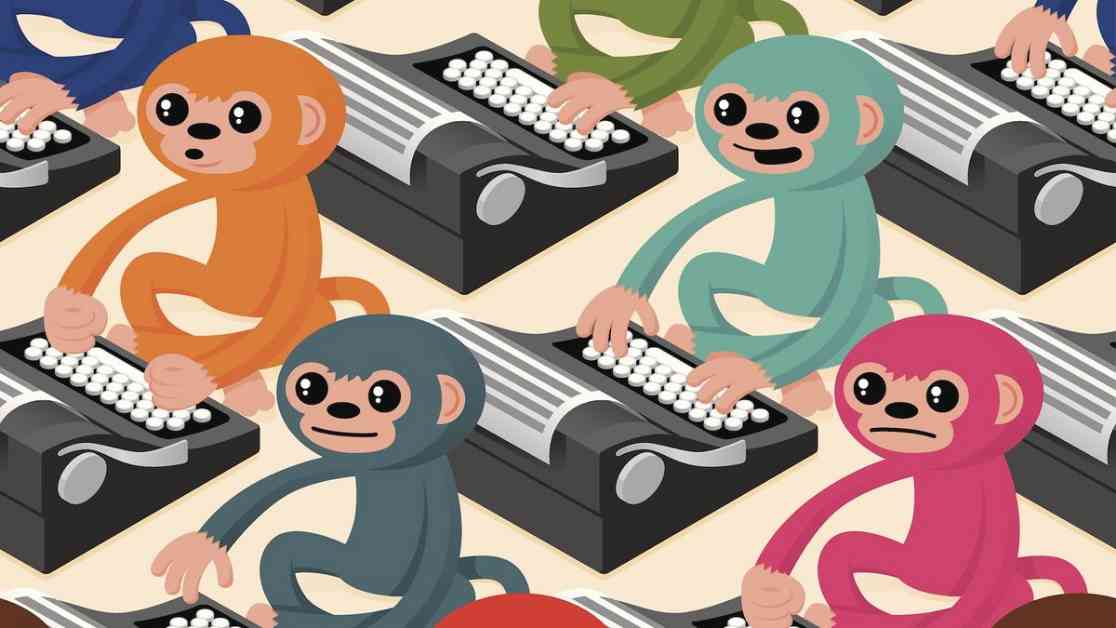Debunking the Myth of Infinite Monkeys
The infinite monkey theorem has long captivated our imaginations with the idea that given enough time, monkeys could randomly replicate the works of Shakespeare. But is this truly possible, or just a whimsical fantasy?
Theoretical Exercise or Realistic Possibility?
The infinite monkey theorem, first proposed by mathematician Émile Borel in 1913, suggests that with an infinite amount of time and monkeys randomly typing on a typewriter, the complete works of William Shakespeare could eventually be reproduced. However, experts caution that this task is likely unachievable within the confines of our finite universe.
Stephen Woodcock, an associate professor of math and physical sciences at the University of Technology Sydney, explains that while the concept of infinity allows for even the most improbable events to occur, our universe is not infinite. This limitation means that the chance of a monkey randomly typing anything coherent is extremely unlikely, let alone reproducing Shakespeare’s works.
Calculating the Odds
To put the infinite monkey theorem to the test, Woodcock and a colleague conducted calculations with theoretical chimpanzees, our closest relatives. They found that the probability of a chimp typing a word like “banana” in its 30-year lifespan was a mere 5%, with sentences and books being even less likely to be replicated.
Even if chimps continued typing for the entire remaining lifespan of the universe, which is about 10100 years, the likelihood of one chimp reproducing Shakespeare’s works was still astronomically small. The results demonstrate that while the concept of infinity may lead to fascinating thought experiments, its practical application in the real world is limited.
Real-Life Monkey Business
In a real-life experiment conducted at the University of Plymouth in 2002, six Celebes crested macaques were given a keyboard for four weeks to simulate the infinite monkey theorem. The outcome? Five pages of gibberish consisting mostly of the letter “S.”
Geoff Cox, an organizer of the experiment, noted that while the results may have been a scientific failure, they highlighted the unpredictable nature of animals. From bashing the computer with a rock to leaving their mark in the form of keyboard “art,” the monkeys’ behaviors showcased the inherent unpredictability of the animal kingdom.
As we explore the boundaries of probability and randomness, it becomes clear that while the idea of infinite monkeys typing Shakespeare may be a fascinating concept, its realization in our finite universe remains a distant dream.
About the Author
Marilyn Perkins, a science writer and illustrator based in Los Angeles, brings a unique perspective to the world of scientific exploration. With a background in neuroscience and a passion for storytelling, she delves into complex topics with clarity and creativity. Perkins’ work has been recognized for its excellence, earning her accolades in the field of science writing. Through her writing, she invites readers to journey into the fascinating realm of scientific discovery, where imagination meets reality in unexpected ways.




